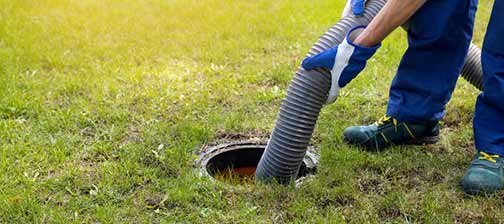
Septic tanks are a vital part of the plumbing in homes that lack access to a central sewer system. Septic systems play the same role as central sewer systems, but there are key differences in how they operate, says Dallas Management team.
Homeowners with septic systems on their property must be very intentional about how they use and maintain them. They have to be more vigilant than homeowners whose houses are plugged into a municipal sewer line.
This reason is because septic systems depend on a fragile balance of diverse factors to work well. Minor changes in something as seemingly insignificant as how much water a household uses per time can impact the system severely.
Also, unlike homes connected to a central sewer system, owners of septic systems are fully responsible for all aspects of the system. If there are problems in the septic tank or the drain field, the homeowner will bear the full cost of those issues alone.
Lastly, septic system malfunctions register quicker on the daily routines of a household than if the home was hooked up to a centralized sewer line. Homes with septic systems have a narrow margin of error for dealing with sewer line issues.
This is why, as a homeowner in Illinois whose home depends on a septic system, you must know how to care for this critical component of your home. Septic tank problems can devastate your household, and solving those issues may take a huge toll on your finances.
The good thing is that most septic system problems are avoidable, and they give you fair warning before happening. If you make the time to understand your septic system and how to care for it, you can avoid costly septic system problems in your home.
Regular septic tank pumping: what it is and why you need it
Septic systems are designed in a way that allows them to filter out the solid and semi-solid matter in wastewater before letting the liquid content flow into the drain field. However, this design also means that your septic tank will collect solids and sludge.
After a while, the buildup of materials inside the tank will start to interfere with the function of your septic system. To fix this problem, it is necessary to pump out the septic tank. Pumping out a septic tank prevents blockage and ensures efficient function of the system.
To pump out your septic tank, a professional will come to your property with a large vacuum pump truck equipped with a suction hose and tank. The waste inside the septic tank is pumped into the tank and transported to a sewage processing plant for proper disposal.
When pumping out your septic tank, the professional inspects it for leaks and other problems. In addition to removing sludge and solids from the tank, the detected problems in the system are also addressed. How often should a septic tank be pumped?
There is no single right answer to this question because septic systems are custom-built to fit a home’s needs. But as a rule, you want to pump the tank every 3-5 years. Factors that affect how often you pump your septic tank include:
- Septic tank size
This is the main factor that determines how often you should pump your tank.
- The family size
Ideally, the septic tank size should correlate to the number of people in the household.
- Total wastewater generated
How much water your household uses determines how quickly the tank fills up.
- Volume of solids in wastewater
Your tank will fill up faster if a lot of solids and semi-solids are flushed into it.
Benefits of pumping your septic tank regularly
- Prevent system failure
If the septic tank is not pumped regularly, it will cause septic system failure. If your septic system fails, solids may enter the drain field and block the pores. This can prevent proper drainage and treatment of effluent.
- Avoid drain field replacement
If your septic system fails and your drain field is damaged, you may need a new drain field. Installing a new drain field is expensive. You can avoid that expense by pumping your tank regularly.
- Prevent leaks and sewage backup
An overflowing septic tank is more likely to leak and suffer from other problems. There is a possibility that the sewage inside the tank will backflow into your home.
- Preserve health and indoor air quality
Effluent from a failed septic system can rise to the soil surface and cause bad odors around your home. People who come into contact with this unsanitary material will be exposed to a host of infectious diseases.
- Protect the environment
Septic tank fluids can penetrate the soil and contaminate groundwater. This contaminated water can find its way to natural sources of drinking water. Untreated wastewater harms plant and animal life.
To conclude, regular septic tank pumping protects your septic system, wallet, and family. If you are unsure of when you should pump your septic tank, it is recommended that you have the system inspected by a professional.

